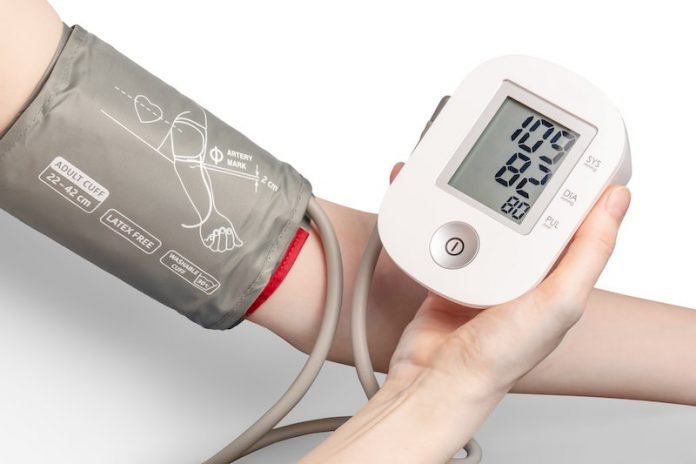
In a new study from the University of Maine and elsewhere, researchers found using B vitamins to lower homocysteine levels is an effective means of reducing blood pressure and may be especially useful in the management of drug-resistant hypertension.
Approximately 12.8% of the world population experiences drug-resistant hypertension, defined as a failure to reach a target blood pressure of 140/90 mmHg using three classes of antihypertension medication.
A newer definition of hypertension, 130/80 mmHg, makes successful management even more difficult to achieve.
Homocysteine is an intermediate compound involved in vitamin regulation. Elevated homocysteine is the result of genetic mutations or inadequate stores of vitamins B6, B12, folate and riboflavin (B2).
High homocysteine is linked to impaired nitrous oxide synthesis, which is related to small vessel vasoconstriction and is a risk factor for high blood pressure, heart disease, stroke and neurological diseases.
Lowering of homocysteine is relatively inexpensive because it is achieved by providing vitamin supplementation.
While recent literature supports the efficacy and safety of homocysteine-lowering in the treatment of hypertension, the validity of this generalization has been challenged.
In the study, the team reviewed the research literature.
They concluded that supplementation with sufficient nondietary-sourced vitamins B2 (riboflavin), B6, folate and B12 can safely lower blood pressures as much as 6 to 13 mmHg.
The updated reference value for normal homocysteine is ≤10 μmol/L.
However, many laboratories define normal homocysteine levels as high as 11.4 μmol/L.
Researchers argue that there is a need to update laboratory values for normal homocysteine and to determine whether risk-protective values should be even lower.
Vitamin treatment is a potentially important adjunct to drug treatment of drug-resistant hypertension, but therapy should be conducted under the direction of a physician or qualified health care provider.
If you care about blood pressure, please read studies about which blood pressure number matters most, and common food that could improve your blood pressure, blood sugar.
For more information about health, please see recent studies about common drugs that may increase your blood pressure, and results showing that high blood pressure and fatty liver don’t add up in death risk.
The study is published in the American Journal of Hypertension and was conducted by Merrill Elias et al.
Copyright © 2022 Knowridge Science Report. All rights reserved.



